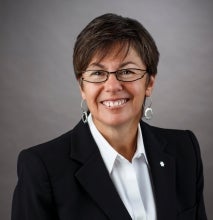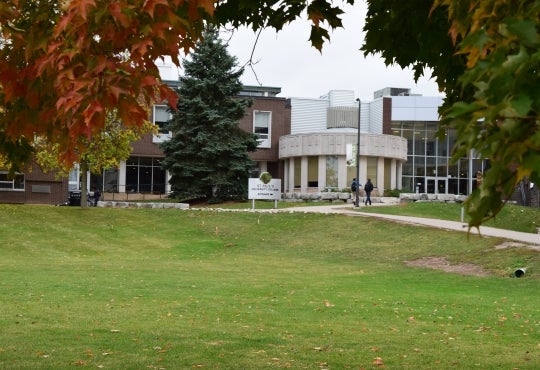Welcoming the 2015 Carold Institute Visiting Fellow
 The Carold Institute Visiting Fellow program brings to campus and the broader Kitchener-Waterloo community individuals who are making a major contribution to positive social change through innovation in the volunteer/not-for-profit sector in Canada. The annual Fellowship is sponsored by the Carold Institute and St. Paul’s University College.
The Carold Institute Visiting Fellow program brings to campus and the broader Kitchener-Waterloo community individuals who are making a major contribution to positive social change through innovation in the volunteer/not-for-profit sector in Canada. The annual Fellowship is sponsored by the Carold Institute and St. Paul’s University College.
This year's visiting fellow is Dr. Kim Pate, C.M., the Executive Director of the Canadian Association of Elizabeth Fry Societies (CAEFS). She is a lawyer and teacher by training and has completed post graduate work in the area of forensic mental health.
Kim is the Ariel Sallows Chair in Human Rights at the University of Saskatchewan College of Law and a part-‐time professor at the University of Ottawa, Faculty of Law. CAEFS is a federation of autonomous societies which work with, and on behalf of, marginalized, victimized, criminalized and institutionalized women and girls throughout Canada. Kim has also worked with youth and men during her more than 30 years of working in and around the legal and penal systems.
Kim will spend time meeting and working with several classes and student groups while on campus. She will end her visit with a free public lecture held at St. Paul's on November 11.
Register or find more details about this fascinating and important talk: The Terrible Truth About Canadian Crime: No Justice for Women
St. Paul's teams up with the Centre for Community Based Research
Our mission at St. Paul's is to research and teach the knowledge, skills and values needed to address complex local and global development issues. Over the past few years International Development, St. Paul's GreenHouse, and other new initiatives have strengthened the teaching and skill-building components, and a recently announced affiliation with the Centre for Community Based Research (CCBR) will do the same for our research.
The CCBR is an organization based in Kitchener with a similarly focused mission that has been successfully applying research and mobilizing knowledge through local, provincial, national, and international projects for 33 years.
With a shared emphasis on research that leads to societal innovation and change, it's easy to see why this will be such a great match for both organizations.
“Our students want to change the world. We prepare them with sound theory tested through experiential learning. With the CCBR connection, we can now engage students in relevant research that contributes to community problem-solving,” said Graham Brown, Principal of St. Paul’s.
“What this collaboration means is: If you want to use research to solve societal issues, this is the place for you,” said Joanna Ochocka and Rich Janzen, Co-Directors at CCBR.
CCBR will eventually be housed at St. Paul’s, but the formal collaboration will begin before that with two CCBR senior researchers being appointed Research Associates at St. Paul’s. Research and community projects will be based around four key areas, all of which relate to the work of St. Paul's students and faculty: Community health and wellness, Aboriginal and cultural diversity, international development, and faith and society.







